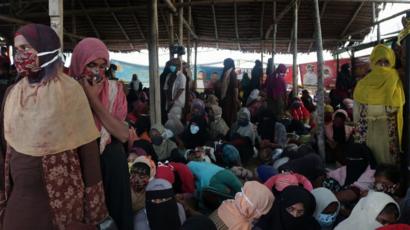As democratic rivalries rise, the discrepancies and issues with democratic governments are recognized and magnified. Out of 91 democratic governments that surfaced from 1974-2012, 34 of those democracies have collapsed while the effectiveness of 28 other democracies has flatlined. With the rise of COVID, democratic governments take a big blow from social issues such as inequality among the population, discrimination toward minority groups, and systematic corruption.
Over the decades, many countries have fought against tyranny for the ideal democratic society that ensures freedom among the population. However, just as though there are many positives about a democratic government during a crisis, there are many flaws and disadvantages as well. The problem for democracies during a national pandemic is the question of whether the government should take the proper precautions to ensure the preservation of the community as a whole and strive to minimize COVID even it invokes the population's freedom or should the government focus on minimizing economic costs while setting guidelines that could benefit the society during the pandemic while allowing the freedom of the population to continue? One false decision could end the democracy if the pandemic freezes the economy by its uncontrollable increase in cases.
These decisions cause a polarization of what is the true function of a democratic government. Originally, a democratic government is supposed to be able to create a society where the population can exercise free speech, press, etc. However, during the crisis in Indonesia, a poll taken by the people before and during the crisis had shifted from those original views to the idea that a democratic government should instead provide great decision-making on behalf of the people instead of leaving the decision making up to the people. The issue of modern-day Indonesia is that this pandemic can lead to civil unrest, political turmoil, and an economic meltdown. Indonesia's informal sector of workers is taking the biggest economic impact of this crisis and this is very dangerous because this sector makes up the majority of the workforce. The Indonesian government has implemented fiscal policies that plan to fund and advance healthcare and provide economic assistance to poor communities. The problem is whether these policies are adequate enough to work and if a democratic government is a sustainable concept during a crisis. With rising uncertainty on whether the Indonesian government is capable of willing their people through this pandemic, the efficiency of a democratic government such as this will be tested.
Sources:
https://www.thejakartapost.com/academia/2020/09/08/insight-are-democracies-equipped-to-handle-fast-moving-economic-crises.html
https://www.icis.com/asian-chemical-connections/2020/05/southeast-asia-polyolefins-demand-may-fall-by-as-much-as-during-asian-financial-crisis/
https://www.bbc.com/news/world-asia-54034014




No comments:
Post a Comment